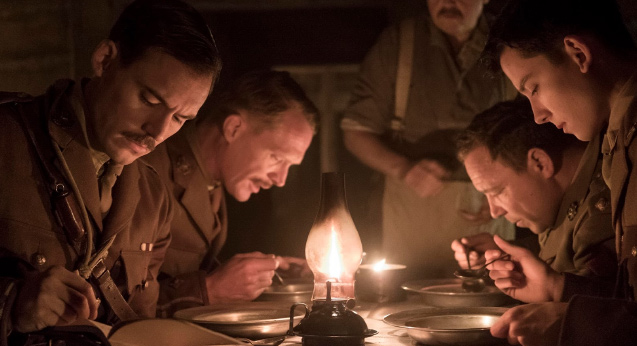Journey’s End is a a top-notch World War I character piece
“It’s a bloody good story and a neat summary of why war is hell.”

A group of British officers awaits their fate in the trenches during WWI in this drama based on the play by R.C. Sherrif.
The events of the film may feel familiar, but that’s because it’s such a good story and summary of the hellish experience of war, writes Tony Stamp.
If Christopher Nolan’s Dunkirk was a widescreen panorama of one battle, Journey’s End is an uncomfortable close-up of another. The story has existed as a play since 1928 (ten years after the events it depicts) and might feel familiar after four prior film adaptations (also the fourth season of Blackadder is heavily indebted, right down to the jokes about gross food). But there’s a reason it has persisted: it’s a bloody good story and a neat summary of why war is hell.
The film focuses on a group of British officers in the trenches, all well-drawn, and played by fantastic actors. Sam Claflin is a Captain slowly buckling under huge pressure, and Paul Bettany is all warmth as a Lieutenant literally dubbed ‘uncle’. It’s great to see Bettany in this type of role where he gets to be gentle and have a twinkle in his eye—he excels at them.
The film takes advantage of its stage roots by playing up the claustrophobia of the officer’s dugout. From there, it’s a slow descent into anguish, the British stiff upper lip starting to quiver when faced with overwhelming odds. As soon as audience surrogate Asa Butterfield bounds onscreen you figure it’s not going to end well for him, a naive young Lieutenant sold a lie and full of vim and vigour. Rounding out the cast are two more heavyweights: Toby Jones (if you’ve seen Blackadder Goes Forth, he’s essentially playing Baldrick), and Stephen Graham.
It can’t be said that this is a fun time at the movies, but it’s a top-notch character piece. It honours the men who fought in World War 1 simply by showing the horror of their situation, then asking the audience how they would fare in a similar position.






















